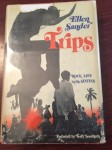
The news that Pitchfork is being swallowed by GQ dealt a body blow to many of us for multiple reasons. My heart goes out to those able journalists now looking for work in a market increasingly flooded with workers from other recent layoffs, such as those at Bandcamp. The shrinking of platforms for professional critical discourse and news about music is alarming for artists and labels as well as those who work for websites. For me, the most sickening aspect is the fact a music publication has been consumed by a men’s journal. This has been a huge part of the problem of music journalism for decades; it’s one of the reasons Rolling Stone has always covered women so little and poorly – in the ‘90s when I freelanced for Stone, we were always told that it was a men’s magazine; Wenner Media sibling publication Us was for women. P4k started off being a rather typical nerdy indie boy blog, but it rose above those snarky beginnings to become a platform for diverse types of music and writers. I loved the way it reckoned with its own past by reevaluating its reviews. The fact that a female POC, Puja Patel, has lost her admirable run as editor in chief is a stab in the guts – that the knife was wielded by another woman, Anna Wintour, sickening. (For the record, I never wrote for Pitchfork and never felt a part of its community, but still I grieve.)
That said, I discussed the news with the 14 undergraduate students in my music journalism class on Wednesday. Only two of them said they ever pay attention to Pitchfork, and all they really know about the site is its rating system – and they aren’t crazy about that. They see it as arrogant, judgmental. Instead this group of dedicated music lovers prefers to find out about new releases through Spotify, social media, and friends and family. (One student reads The New York Times, bless her heart.)
This is a small survey sampling, but it confirms what many of us know: Forget the death of newspapers and magazines (that’s old news about old news), we are now in the end of the era of websites and blogs. Young people crowd source their news, information, entertainment, and opinions. As one student said, she would rather figure out whether she is going to like an artist by reading a bunch of different people’s comments about them, rather than one person’s opinion. And of course, consumers don’t need critics to tell them what records to buy any more: they can hear them themselves on apps and YouTube.
This is all very disturbing for critics, journalists, and media companies, and it’s also bad news for artists – criminally underpaid by Spotify – and the music industry. The only comfort this offers to the talented people at Pitchfork is that they should realize it’s not that they weren’t doing good and important work. It’s just, well, the times, they are a changing. Again.

